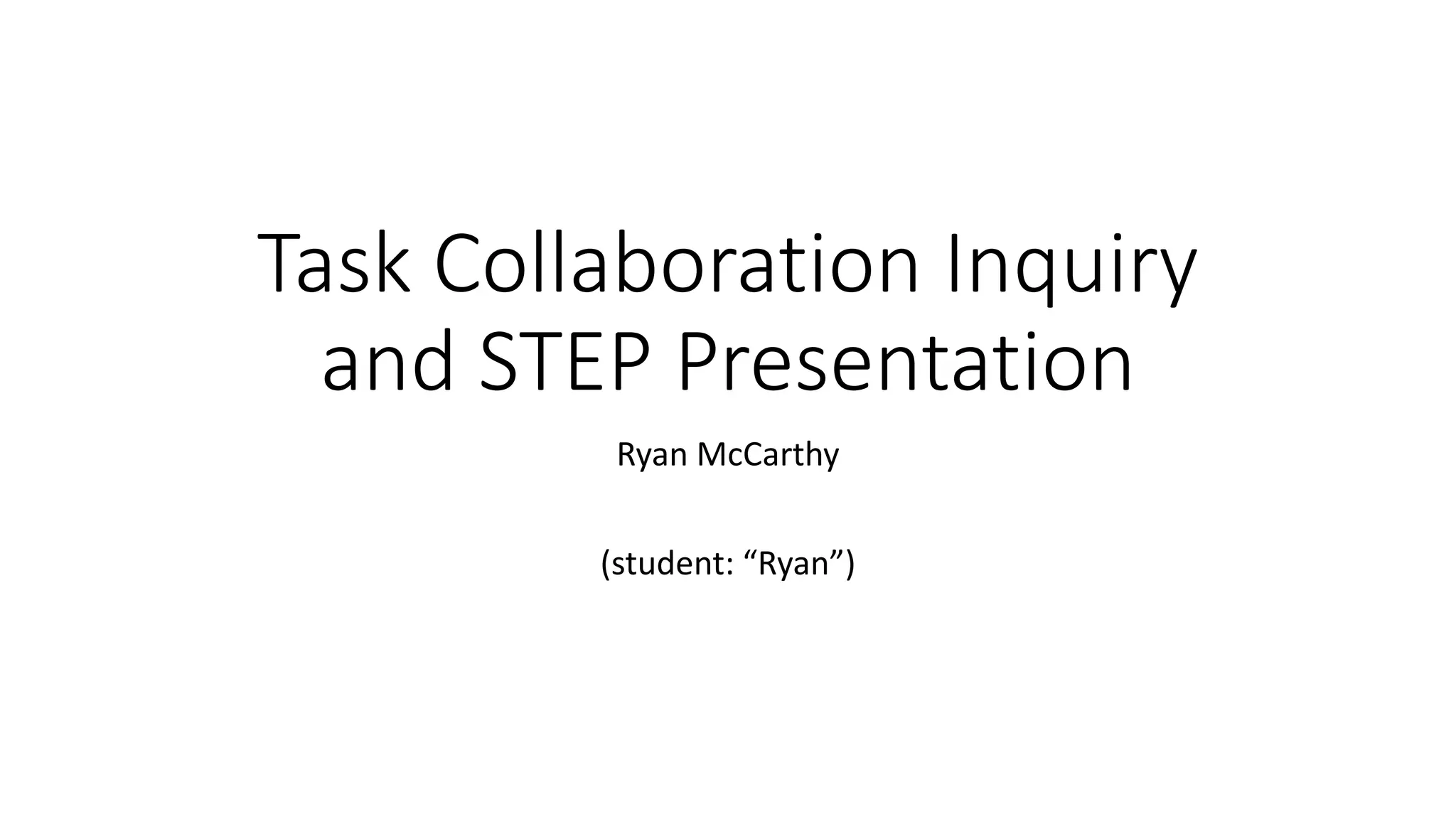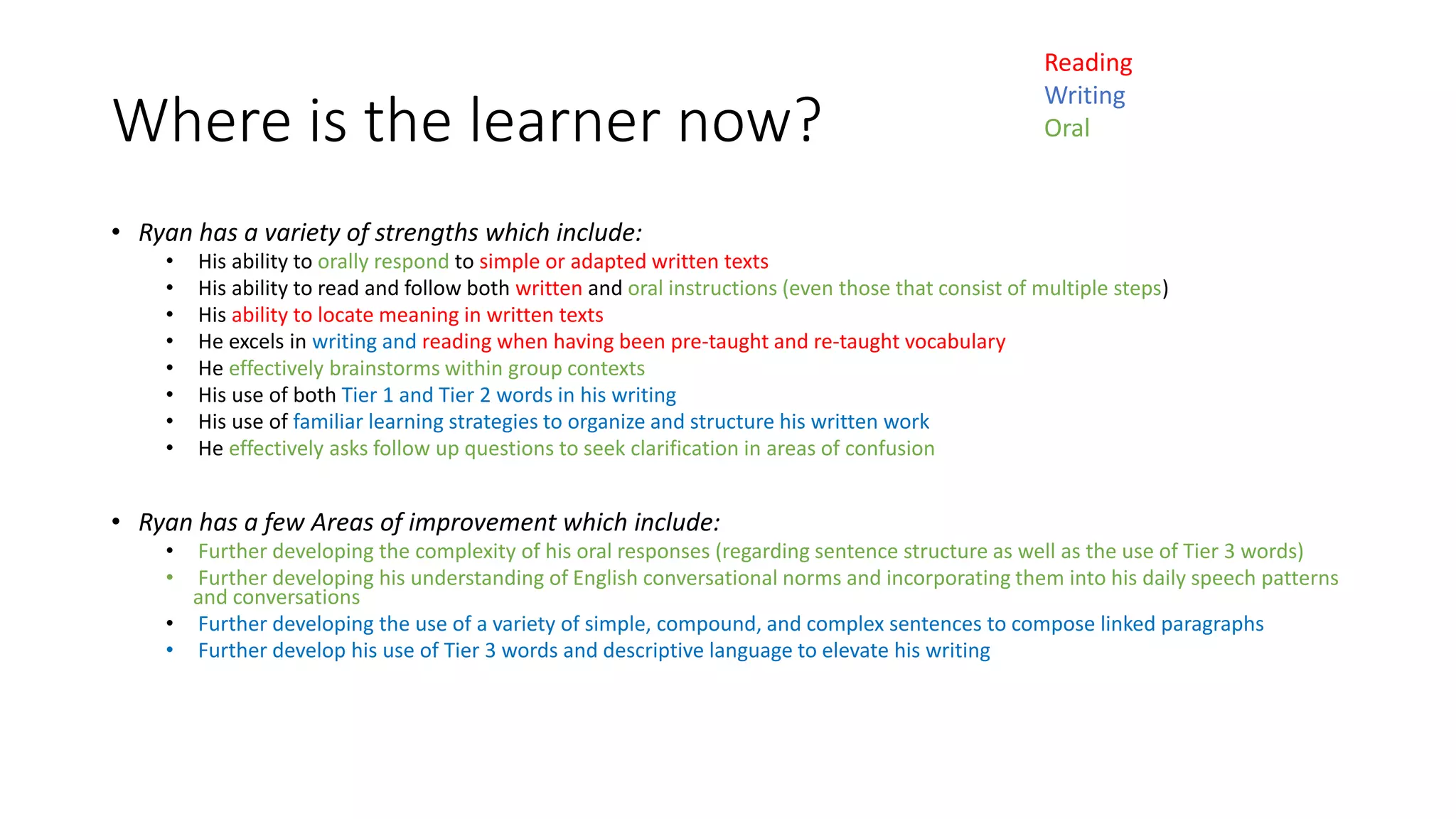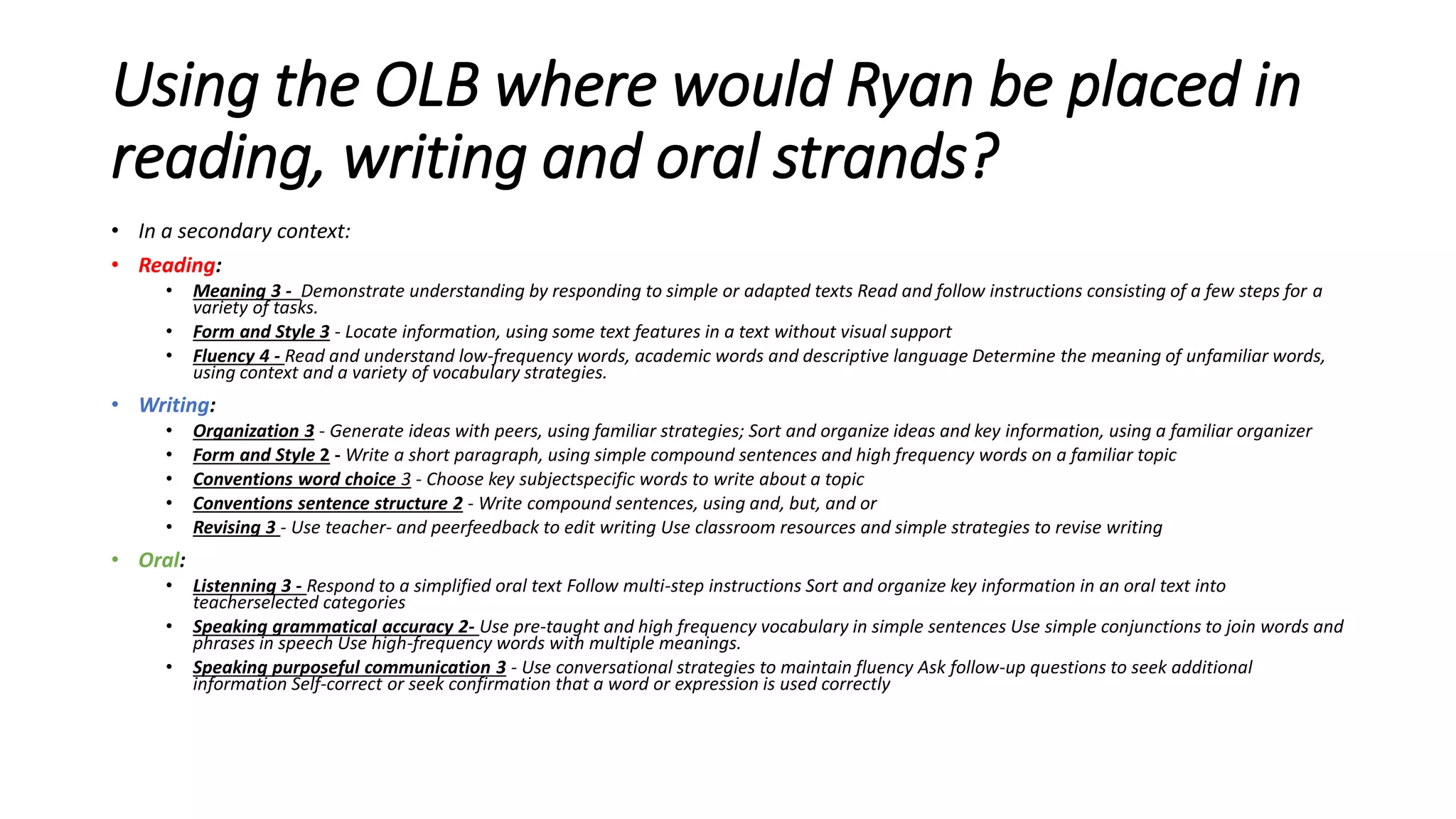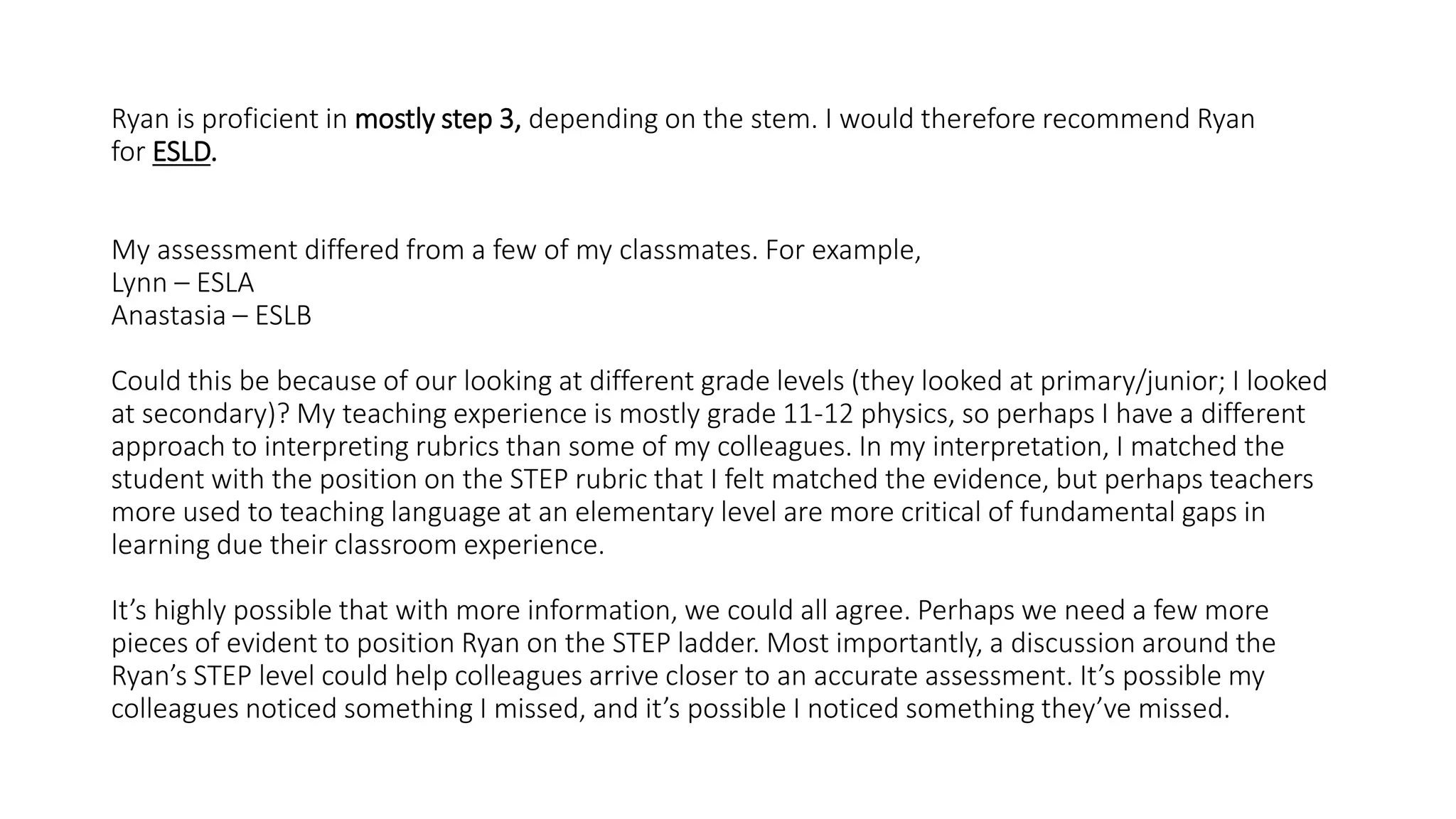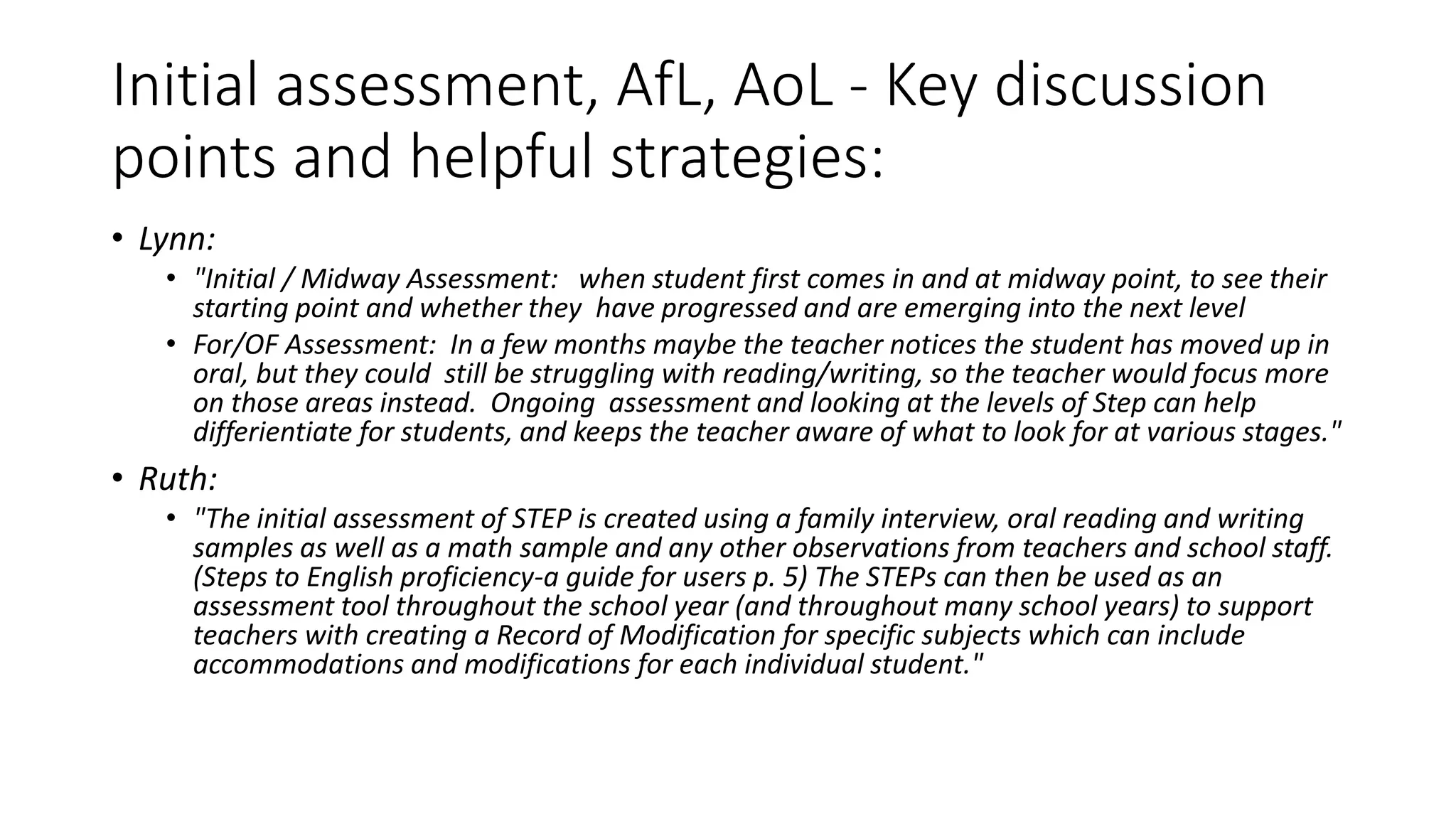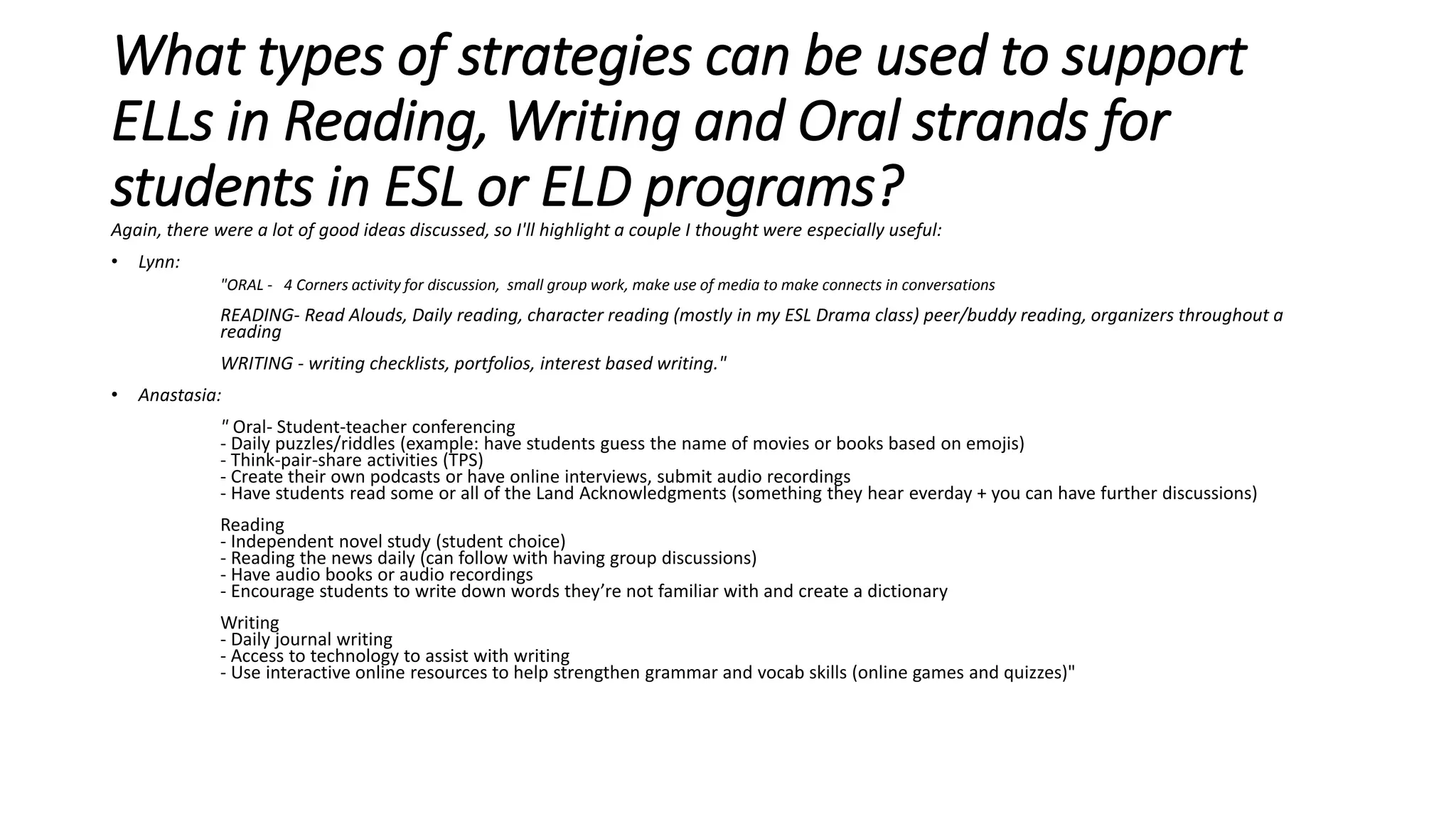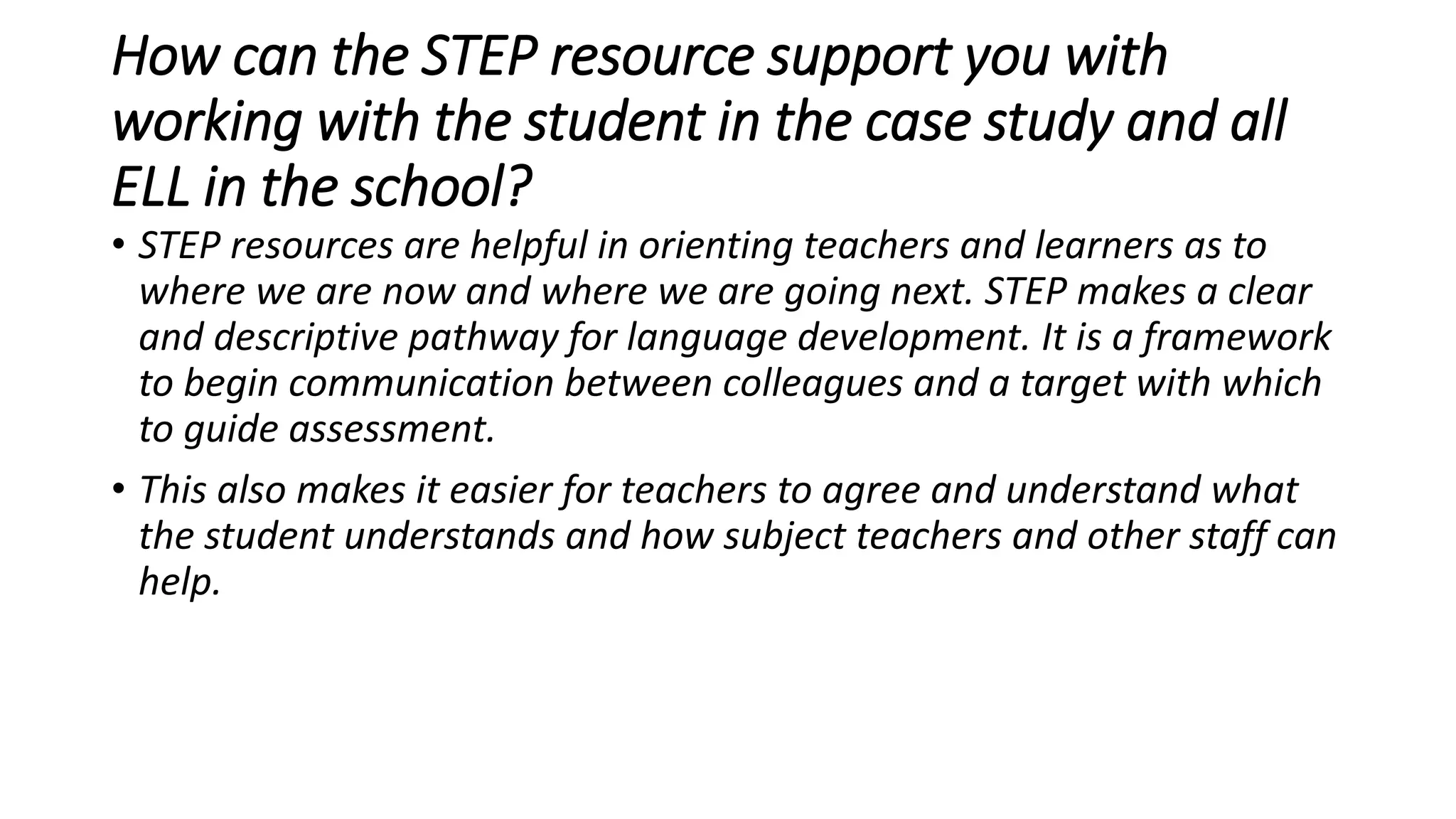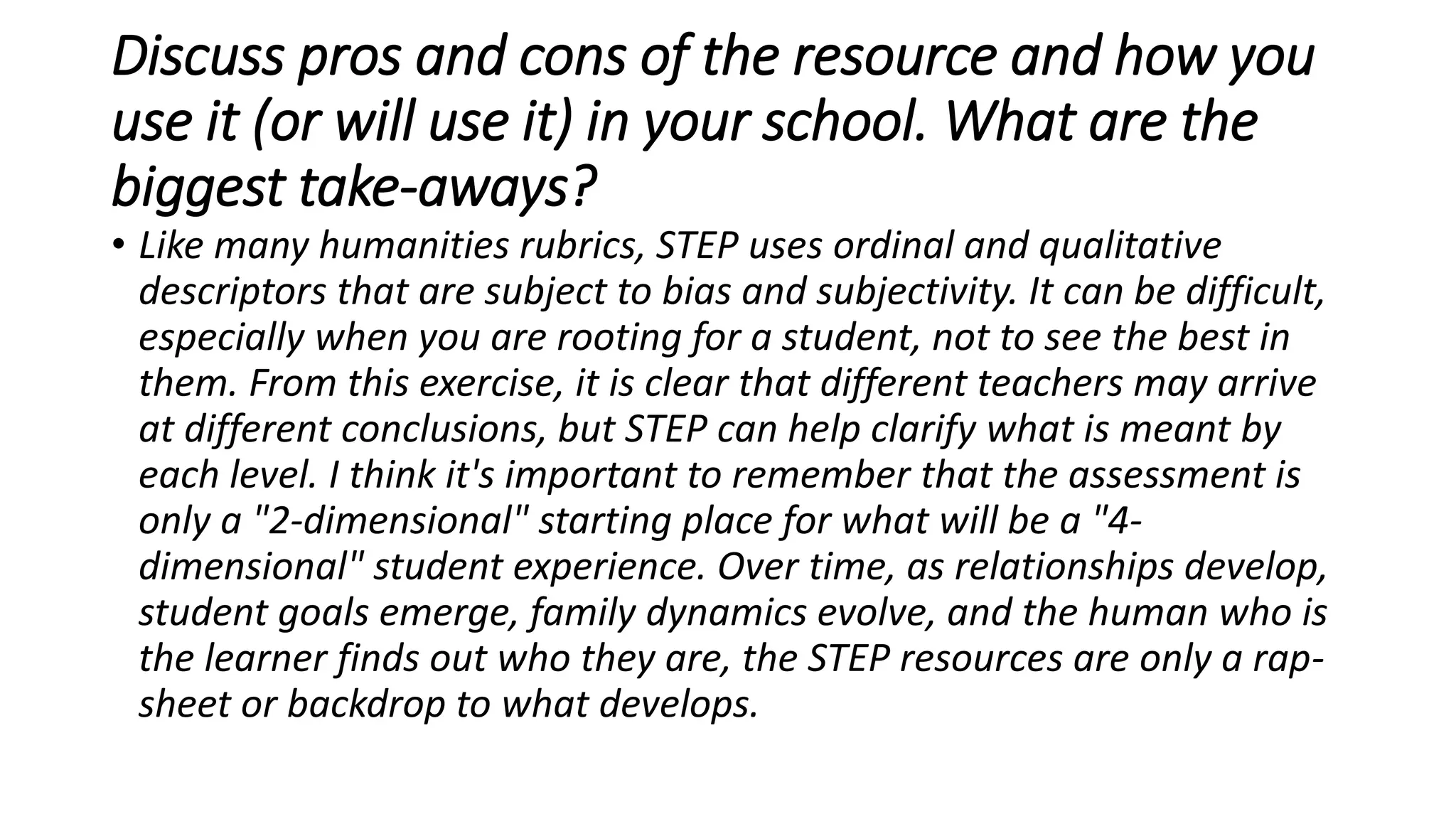This document discusses using the Steps to English Proficiency (STEP) resource to assess and support an English language learner named Ryan. It examines Ryan's current abilities and areas for improvement. There is some disagreement among teachers about which STEP level is the best fit for Ryan. Key discussion points are raised around using initial, ongoing and formative assessment to accurately place Ryan on the STEP rubric and differentiate instruction. Suggested strategies are provided to support Ryan's development in reading, writing and oral skills. Pros and cons of the STEP resource are discussed, emphasizing that it provides a starting point but the student's experience is multidimensional.
